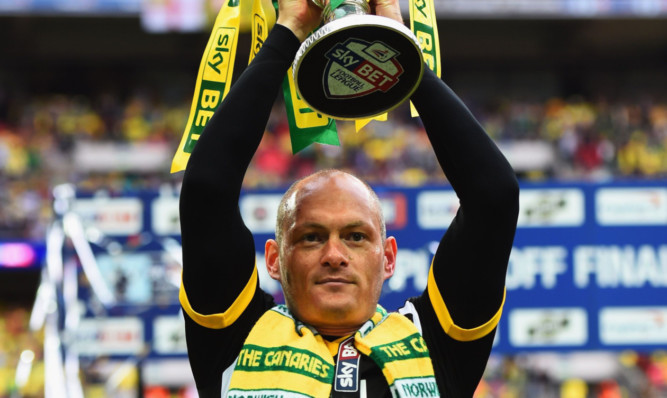
They would strongly deny it, but there will be an assumption in the boardrooms of Newcastle Utd, Sunderland and elsewhere that at least two of the three promoted clubs will go straight back down.
They will base that on Bournemouth having a squad of virtual unknowns and a ground that holds just 12,000.
On Watford’s chaotic managerial history and, in particular, their decision not to offer an acceptable contract to the manager who won them promotion.
On the fact that Norwich still have most of the players that got them relegated a year ago, so why should it be any different next time?
They will look at what happened this season, with Burnley and QPR lasting just a single campaign in the top flight, and conclude that there’s probably only one relegation place to be bothered about anyway.
But if they’re thinking that the perceived deficiencies of the promoted trio means there’s no need to up their own game, they may be in for a rude awakening.
It’s true that at least one newly-promoted club usually goes down. It’s happened in all but two of the 23 seasons of the Premier League.
But that means that of the 68 promotions from the Championship, only 30 clubs have been relegated in their first season. So each has a better than even chance of survival.
Because those clubs that retain Premier League status are able to accumulate TV money over successive seasons, it does mean that those coming up are at a considerable financial disadvantage.
The gap gets harder to bridge with every successive season and in a couple of years’ time, when the new £5.1bn TV deal has kicked in, the discrepancy between promoted teams and existing Premier League clubs will be a chasm.
But promoted teams have assets that those struggling in the lower half of the Premier League usually don’t have. They have momentum, an ingrained team spirit and they’re used to winning matches.
Clubs like Newcastle, who have invested practically nothing recently, and Sunderland, who have become perennial relegation fighters, will be in trouble if they think they can tread water.
It would be wrong to dismiss Bournemouth just because their Goldsands Stadium holds fewer fans than Liverpool’s Kop.
They had the opportunity to make modest increases to capacity but preferred to keep it the same in the hope that the unfamiliarity of a small, tight-packed, intense crowd might unsettle any visitors who aren’t up for it on the day.
They play incisive, attacking football under LMA Manager of the Year, Eddie Howe, and despite their homespun image are backed by a millionaire Russian owner in Maxim Demin, who pumped £25m into the club to finance their promotion push.
Norwich’s expected challenge was flagging in January when Alex Neil arrived following Neil Adams’ resignation.
The Scot’s managerial experience amounted to 70 games with Hamilton Accies but his impact at Carrow Road was instant and dramatic.
So far he’s worked wonders with players he inherited but over the summer will have the opportunity to put his own stamp on the squad.
That old chestnut about clubs needing managerial continuity to be successful had already been blown out of the water by Watford.
So the fact that they will start life in the Premier League with yet another new coach is just par for the course for them.
The man who got them up, Slavisa Jokanovic, was their fourth manager of this season and his replacement likely to be Spaniard Quique Sanchez Flores will be their eighth in four years.
But, however well a team has done in getting into the Premier League, the key to survival a division higher is always in their summer recruitment.
Last season Leicester survived because they got it right. Burnley and QPR went down largely because they got it wrong.
The Foxes invested in a Champions League-winning midfielder in Esteban Cambiasso, spent £17m on two goalscorers in Leonardo Ulloa and Andrej Kramaric and added 1,100 games’ worth of experience in Robert Huth, Mark Schwarzer and Matthew Upson.
QPR, who bought 17 players when they were promoted in 2013 and went straight back down, learned no lessons, continued with a scattergun approach and paid the price again.
Budget-conscious Burnley bought nine players for £9m and simply failed to up the overall quality sufficiently.
Get your transfer policy right and you’ll stay up.
If Bournemouth, Watford and Norwich do that, Newcastle, Sunderland and quite a few others will have reason to be worried.

Enjoy the convenience of having The Sunday Post delivered as a digital ePaper straight to your smartphone, tablet or computer.
Subscribe for only £5.49 a month and enjoy all the benefits of the printed paper as a digital replica.
Subscribe